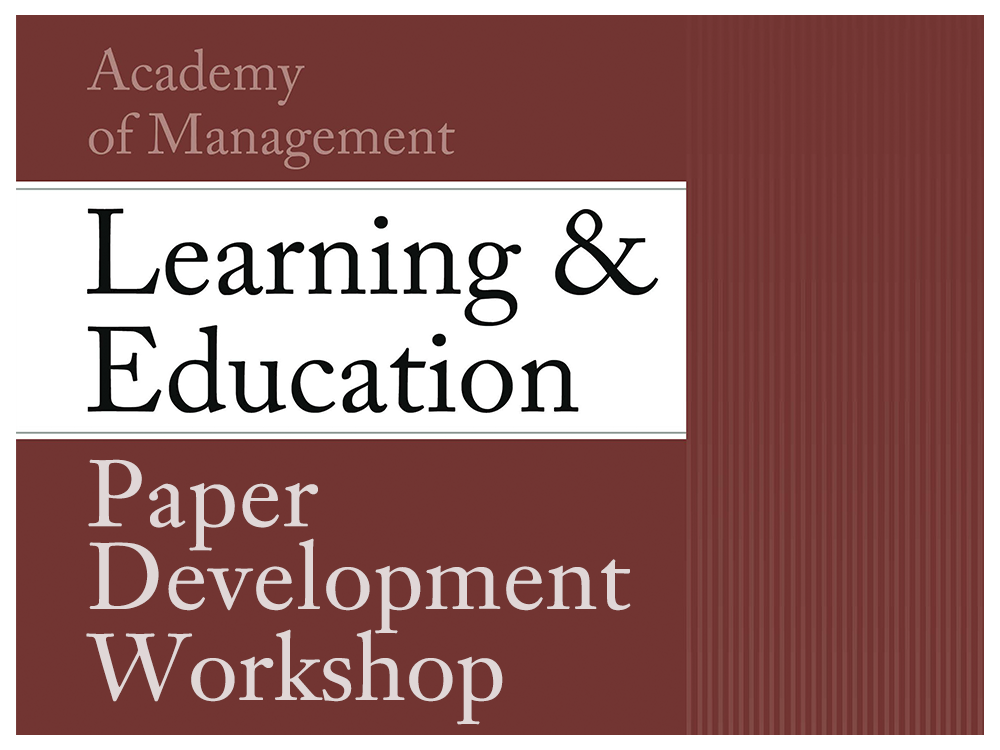AMLE PDW: Addressing Socioeconomic Inequalities Through Management Education and Learning
Submission deadline: 15 March 2022
 | ||
Online Paper Development Workshop
5-6 April 2022
Led By
Arun Kumar (University of Essex, UK); Hari Bapuji (University of Melbourne, Australia); Vivek Soundararajan (University of Bath, UK); Tine Köhler (University of Melbourne, Australia);
Rafael Alcadipani (Escola de Administração de Empresas de São Paulo da Fundação Getulio Vargas, Brazil); Mette Morsing (UN PRME); and Diego M. Coraiola (University
of Victoria, Canada).
Purpose and Agenda
Although belated, management research is paying increasing attention to socioeconomic inequalities (Amis et al., 2020; Bapuji et al., 2020). Despite the vibrant research on the role of management, organizations, and decision-makers in socioeconomic inequalities, concerted scrutiny of the links between management education and re/production of socioeconomic inequalities has been limited (see Fotaki & Prasad, 2015 for similar acknowledgement). This silence is more telling at a time when socioeconomic inequalities are widening, globally (Piketty, 2020).
The limited attention on inequalities in management education and learning is particularly significant as higher education is often considered a crucial site of social mobility and integral to alleviating inequalities, globally. In what has since come to be known as the “rhetoric of rising”, the idea that those who had hitherto been at the receiving end of inequalities could move ahead in life, depending on their talent, ability and hard work gained ground (Sandel, 2020). Among others, the meteoric rise of business schools in post-World War 2 USA has been attributed to this expansion of state-funded higher education, which was premised on the idea that societal well-being required large numbers of university graduates (Khurana, 2007).
However, recent studies have since debunked the myth of merit-based social mobility as the solution to inequalities. In fact, more than countering, educational institutions are increasingly being recognised as sites of transmittal of pre-existing and creation of new inequalities. Khan (2010), for example, outlines how elite institutions train their students to embody their privileges. That is, entitlements arising due to class and cultural capital, and racial identities are mobilized and enacted in educational settings. Building on which, extant scholarship (albeit limited) from the field of management education and learning has been insightful in terms of scrutinizing business schools as sites of reproduction of inequalities and enactment of privileges (Zulfiqar & Prasad, 2021). Its extensive use and reliance on economic orthodoxy further sediments the hegemony of neoliberal capitalism – and exacerbation of economic inequalities (Fotaki & Prasad, 2015).
The growing pressure on business schools and management education to address inequalities between the rich and the poor (Khurana, 2007) has culminated in calls for activism within business schools and reimagining them as questioning spaces (Contu, 2020; Dar, Liu, Dy & Brewis, 2021). Such scholarly calls for examining the role of management education and learning (and business schools, in particular) have become all the more critical in the context of decolonizing and Black Lives Matter movements, which have presented a thoroughgoing critique of racialized capitalism in the Global North and its hegemony.
About the Workshop
To support the conceptualization and development of papers, the Special Issue’s editors are organizing two online workshops on:
6 April 2022, 10:00-12:00 EST (5 April 2022 16:00-18:00 PST)
Workshop Format
The workshops will be organized into two parts:
We will begin with a short presentation on the theme of the special issue and an overview of AMLE’s editorial practices and expectations.
Following this, the participants will be organized into breakout groups (each corresponding to a theme), with a member of the editorial team chairing the discussion. The participants will receive detailed feedback from their peers and on behalf of the editorial team.
The workshop will close with brief remarks from the organizers.
Application Process and Deadline
Prospective authors are invited to submit their short papers here by March 15, 2022.
As long as the short papers fit the remit of the CFP, their authors will be invited to participate in the online workshops, which is neither a requirement nor a guarantee of their paper’s subsequent acceptance. The editors will then organize the papers into groups led by one or more members of the editorial team around meaningful themes, and circulate the short papers within each group to facilitate peer exchange and feedback.
Submission Instructions
- The maximum word limit for the short paper is 2,000 words, excluding references and appendices but including figures and tables.
- The first page of your short paper must have title and author information, including names and email IDs.
- You can submit your short papers here .
- Please note you will be asked to indicate your preference between the two slots. While the editors will make every effort to accommodate you, this may not always be possible for logistical reasons.
- Last day to submit: March 15, 2022